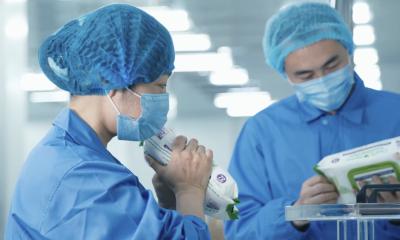Tap water
by Professor Martin Exner
Hospital acquired infections affect about half a million people annually, and water is a serious source of infection.

According to Professor Martin Exner, Director of the Institute for Hygiene, Bonn University: ‘Up to now, between 10,000 and 12,000 Legionella infections have been said to occur in Germany every year. However, recent studies suggest that this number is significantly higher. The incidence of Legionella infections in Germany can be estimated at 25,000 to 30,000 per year. Today we know that at least 40 percent of all Pseudomonas infections, for example in intensive care units, can be traced back to the water pipe system,’ he added. Experts also indicate that these infections are of significance in the domestic environment, especially for immuno-compromised people.
Whilst water companies provide clean water, complex water installation systems provide excellent growth conditions for bacteria and ideal temperatures from 20-50 degrees Celsius. They can multiply in the biofilm, the slimy layer inside pipes, and are protected from disinfection and high temperatures. The organisms can then be transmitted during showers or face and hand washing. If Legionella or Pseudomonas are detected in water, counter measures must be taken by an operator. In hospitals, for example, disposable point-of-use filters, installed on showerheads or water taps, clean water by using high-tech membranes, and these are reported to be efficient.
Details: info@pro-wasser.de
07.08.2006





